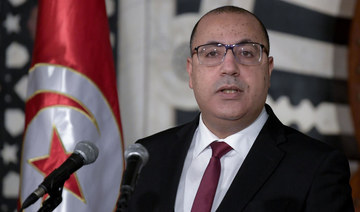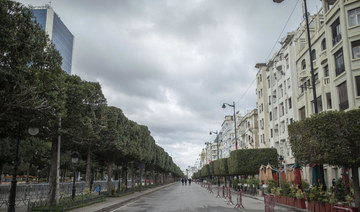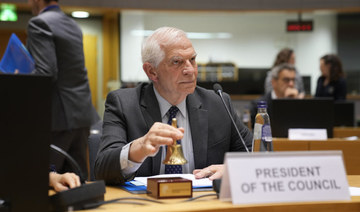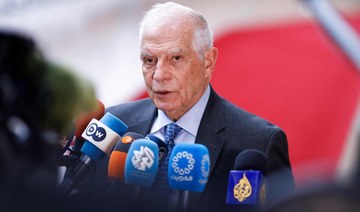TUNIS: Police used tear gas to disperse violent protests led by disgruntled youths in several Tunisian cities overnight, including in the capital of Tunis and in the seaside city of Sousse.
Tunisians in general are angry that the North African country is on the verge of bankruptcy and has dire public services. And many feel disappointed that on the 10-year anniversary of the revolt that ousted President Zine El Abidine Ben Ali there is little to show in terms of improvement.
Police swooped in as shops and banks were looted and vandalized, arresting “dozens” of youths, according to state news agency TAP.
Protesters blocked roads by burning tires and threw stones and other objects at police and businesses, according to the Interior Ministry, which said the situation was now “calm” across the country on Sunday.
Videos circulating on social media showed dramatic chases down alleys between groups of young people and the police who used tear gas to disperse them.
Tunisia on Thursday commemorated the 10th anniversary since the flight into exile of Ben Ali, who was pushed from power in a revolt that foreshadowed the regional pro-democracy uprisings, strife and civil war in North Africa and the Mideast that came to be known as the Arab Spring.
A budding democracy in Tunisia grew out of the aftermath. And yet, despite gains, a pall of disenchantment hangs over the North African country, which has been stressed by extremist attacks, political infighting, a troubled economy and promises unfulfilled, including development of the interior.
Despite guaranteed rights and numerous democratic elections, protests flourish, especially in the central and southern regions where the jobless rate among youth reaches 30 percent and the poverty level is above 20 percent.
According to the Tunisian Forum of Economic and Social Rights, more than 1,000 demonstrations took place in November alone. Months of sit-ins have paralyzed oil and phosphate production for months, putting holes of billions of dollars in the country’s budget.
The country has had nine governments in 10 years, but the transfers of power have been peaceful.
However, since a general election in 2019, the political class has been more fragmented than ever and paralyzed by infighting, fueling discontent over the continued economic malaise, which has been exacerbated by the novel coronavirus pandemic.
Tunisia’s Prime Minister Hichem Mechichi has announced a major Cabinet reshuffle affecting 12 ministries, in the wake of high-profile sackings.
FASTFACT
Videos circulating on social media showed dramatic chases down alleys between groups of young people and the police who used tear gas to disperse them.
“The aim of this reshuffle is to achieve greater efficiency in the work of the government,” Mechichi said at a press conference in Tunis.
The new lineup, which does not include any women, must be approved by parliament.
A few hours before the announcement, Mechichi had met with President Kais Saied, who insisted the “integrity” of proposed ministers should “raise no doubt,” according to a statement from the presidency.
“There is no place (in the government) for people who are subject to legal proceedings” or to “doubts about their background or their behavior that could undermine the state and the credibility of its institutions and the legitimacy of its decisions,” Saied said.
One of the officials to be replaced is former environment minister Mustapha Aroui, who was sacked and arrested in December in a scandal over hundreds of containers of household waste shipped from Italy.
Chiheb Ben Ahmed, CEO of the Tunisian Export Promotion Center (CEPEX), was proposed as his replacement.
Cabinet chief Walid Dhahbi has been put forward as interior minister to replace Taoufik Charfeddine.
The former lawyer and pillar of Saied’s election campaign was sacked earlier this month over high-level staffing changes he sought to make to some security agencies, according to a previous statement from Mechichi.
The reshuffle also impacts the ministries of health, justice, industry, energy and agriculture.






























